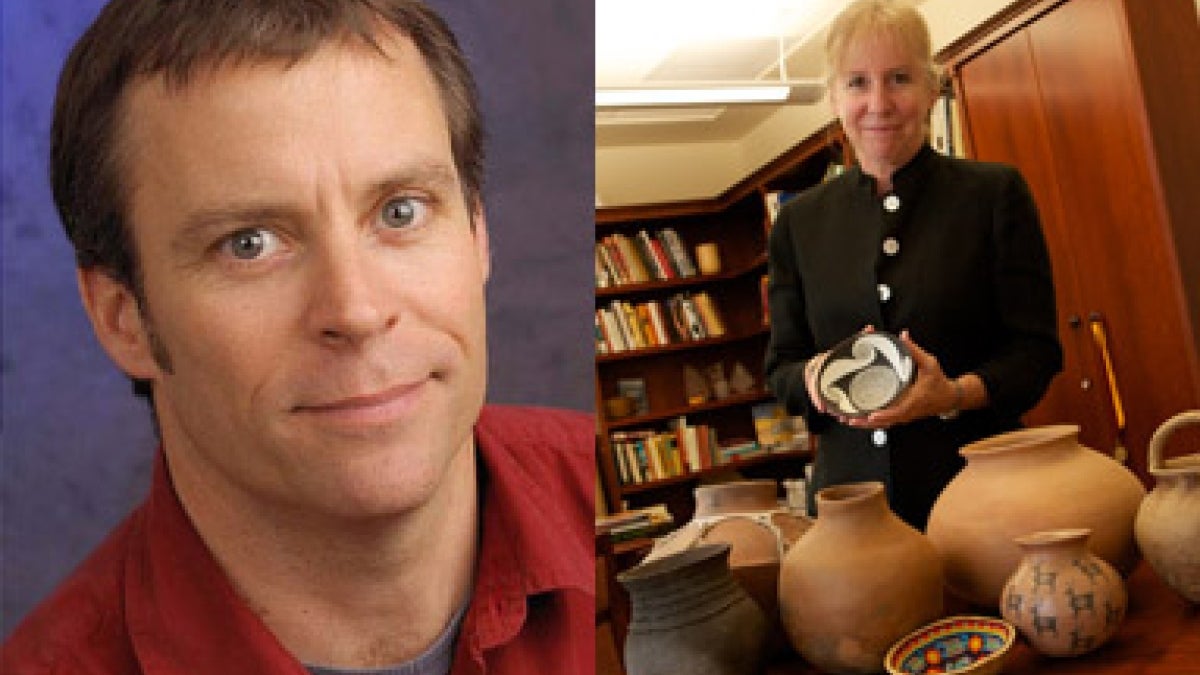Faculty awarded funding to study sustainability issues

Each year, the National Science Foundation’s Dynamics of Coupled Natural and Human Systems (CNH) program provides funding for scientists, educators and engineers to study significant ways in which humans and the natural world interact. Two of the 20 projects chosen for funding this year are overseen by faculty in Arizona State University’s School of Human Evolution and Social Change in the College of Liberal Arts and Sciences.
ASU President’s Professor Margaret Nelson and associate professor J. Marty Anderies are the projects’ investigative leads.
Nelson’s “The Complexities of Ecological and Social Diversity: A Long-Term Perspective” brings together archaeologists, ecologists and mathematical modelers to study which social and ecological diversity tradeoffs provide short-term efficiency and longer-term resilience. The project centers on five archaeological cases from the southwestern U.S. and northern Mexico, which offer protracted views of how social and ecological diversity affected these societies’ abilities to thrive or forced them into dramatic transformations when faced with different environmental or social stimuli.
“Using archaeological and ecological data and dynamic modeling, this research will discover if there are combinations of diversity in ecological landscapes and forms of social organization that make social-ecological systems more or less resilient,” explained Nelson, the vice dean of Barrett, the Honors College, and a distinguished sustainability scientist with ASU’s Global Institute of Sustainability.
Nelson’s team includes, as co-principal investigators, Anderies, ASU professor of archaeology Michelle Hegmon and Jon Norberg, research fellow at the Stockholm Resilience Center. Additional ASU faculty and graduate students, as well as scientists from across the nation and globe, are involved as senior personnel.
Anderies, a senior sustainability scientist with ASU’s Global Institute of Sustainability, has been awarded CNH funding for “When Strengths Can Become Weaknesses: Emerging Vulnerabilities in Coupled Natural Systems under Globalization and Climate Change.” The project will study how small-scale irrigation systems cope with change and evolve under pressure.
“Because small-scale farms – less than two hectares – constitute 90 percent of farms worldwide, consume an estimated 70 percent of developed water supplies, produce 40 percent of agricultural output globally and support the majority of the world’s poorest people, enhancing their adaptive capacity is critical in order to maintain food security and alleviate poverty,” Anderies said.
He believes his research findings will prove valuable in the real world by advancing a more nuanced understanding of the evolution of CNHs in terms of recognizing how, in becoming finely tuned to certain disturbances, small-scale agriculture systems become increasingly vulnerable to new disturbances induced by global change.
He noted, “Building on this insight through theoretical modeling, as well as case studies and field experiments from a wide variety of settings in the southwestern U.S., India, Nepal and Thailand, this project will develop a set of tools that will contribute to the capacity of policy makers to better anticipate emerging vulnerabilities and design learning and adaptive mechanisms to more effectively cope with change.”
Sarah Ruth, CNH program director in Geosciences, praised the selected projects and outlined their potential impact. “This year has another great set of projects that showcase interdisciplinary research,” she said. “By bringing together researchers from a wide variety of academic fields, the projects will provide valuable new insights into the ways in which we, our environment and the natural resources we rely on for our survival act as one interconnected system.”